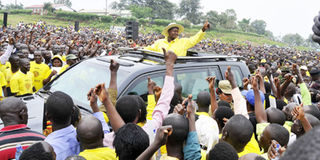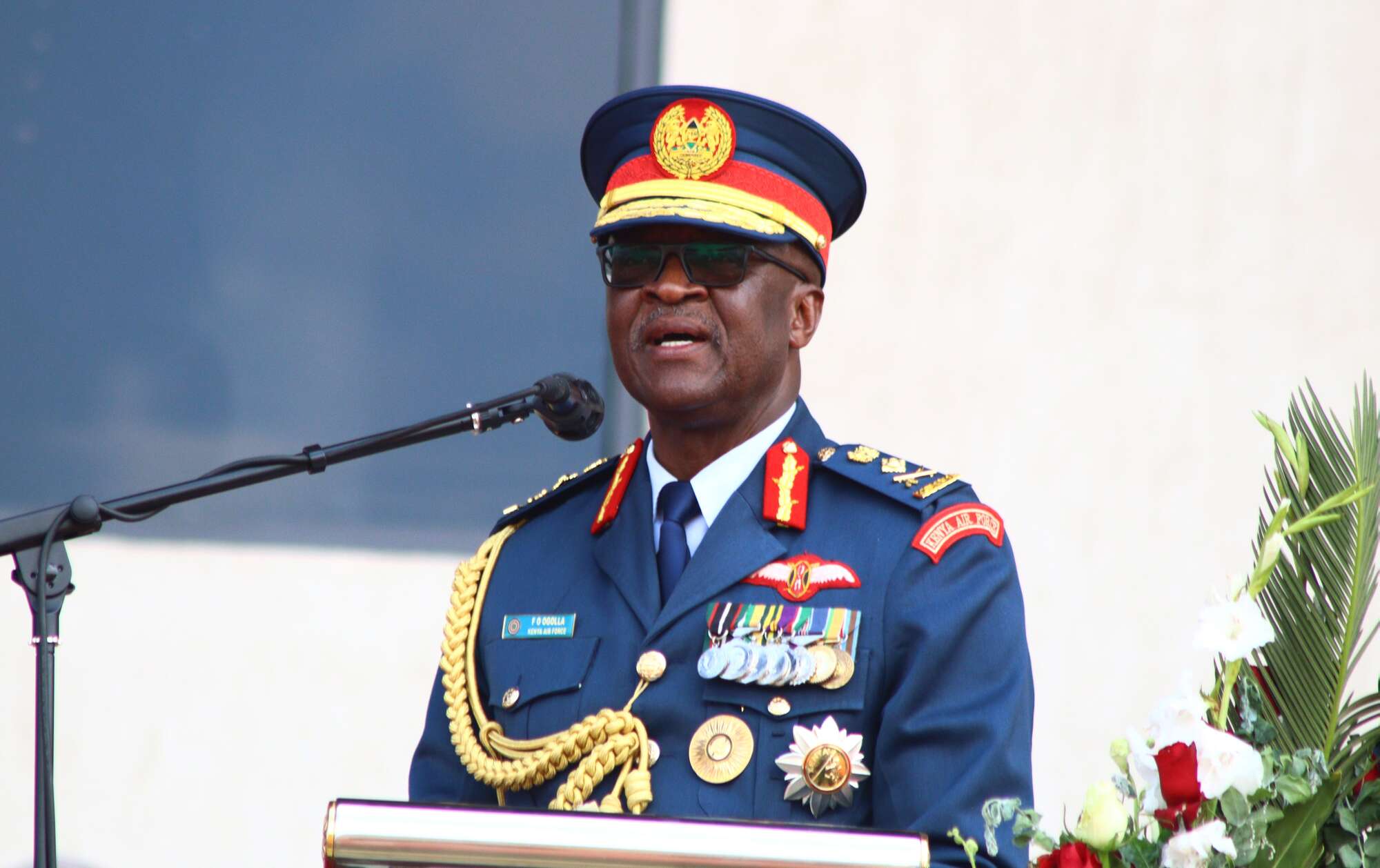Government drafts new rules for political parties

Campaigns. National Resistance Movement presidential aspirant Museveni arrives for a rally at Buhonzo II Village, Bunefule Parish, Bubulo West in Manafwa District, in 2016. PHOTO BY MICHAEL KAKUMIRIZI
What you need to know:
- Violated. Section 19 of the Principal Act, which government wants to amend, only gives the mandate to the minister in consultation with the Electoral Commission and the political parties, with the approval of Parliament to prescribe the code.
In a bid to regulate operations of political parties in Uganda, the government has proposed a code of conduct ahead of 2021 general election.
Last Thursday, Attorney General William Byaruhanga tabled before Parliament five Bills in which government proposed a series of reforms in the laws governing elections in the country.
The Bills tabled are the Presidential Elections Amendment Bill 2019; the Parliamentary Elections Amendment Bill, 2019; the Electoral Commission Amendment Bill, 2019; Political Parties and Organisations Amendment Bill, 2019; and Local Government Amendment Bill, 2019.
Deputy speaker Jacob Oulanyah yesterday said the Bills, which were only sent to Members of Parliament (MPs) through their pigeon holes and the public on Tuesday, had already been submitted to the Legal and Parliamentary Affairs Committee for processing.
Government has moved two amendments in the Political Parties and Organisations Act 2005 with a proposal to amend Section 19 by substituting it with the Code of Conduct for Political Parties and Organisations.
The second proposal is to insert a Fourth Schedule after the Third Schedule of the Principal Act.
In the code of conduct, government has listed at least eight requirements for political parties and organisations on how to comply with the code, observe the rule of law, prevent abuse of position of power, intimidation and violence and influence peddling.
Other parts include the language to be used; how the parties would relate with the Electoral Commission, the media and Uganda Police Force; conduct during campaigns and polling process; how to handle outcome of elections; and the role of election monitors and observers.
On enforcement of the Public Order Management Act (POMA), the Opposition political parties have had a share of disappointments with their meetings being blocked or dispersed by police.
With the proposed code of conduct if the amendment is passed, the government wants political parties to cooperate with police in conducting the arrest of their members found to have violated the electoral laws.
In the Bill, government states in code number 12(1): A political party or organisation shall assist the police in apprehending its members who attempt to or violate the provisions of any law relating to elections and political activities.”
The same provision under 12(2) states that every political party shall recognise the constitutional functions of the police; cooperate with the police in exercise of its functions; give effect to any lawful orders of the police; and allow police officers access to public meetings, marches, demonstrations and rallies.
Concerning the conduct of political parties during campaigns, government has moved five proposals which include respecting the rights and freedoms of all other political parties or candidates; respecting the freedom of the press; no disruption of campaign efforts of another party or candidate; no imitation of symbols of other parties; not holding rallies close to one another in the same time; and not exercising undue influence for the release of party members arrested for alleged violation of electoral laws.
During voting, the code proposes that political parties shall cooperate with election officials for peaceful polling; cooperate with the police and other law enforcement agencies for safety and security of election materials, party agents and electorates at the polling station.
On issues of intimidation and violence, the new code proposes that political parties shall not encourage violence by its members/supporters or affiliates; advocate ethnic and racial incitement; or establish or maintain militia groups.
To cure such intimidation and violence, it is proposed that political parties shall issue guidelines prohibiting its members or officials from intimidating any person; committing acts of vandalism. They will be expected to promote national interests, peace and security irrespective of their political ideologies.
After elections
After any elections are declared free and fair, government proposes in the code of conduct that a party that is satisfied with the outcome declared by the Electoral Commission shall make a pronouncement to that effect, whereas in case of dissatisfaction, the aggrieved party shall petition the relevant court.
The National Consultative Forum (NCF), which brings together all registered political parties or organisations has been proposed as the implementer and enforcer of the code with powers to investigate any reported breach.
There are no proposed specific punishments for the breach of the code but the proposal is that the NCF would issue sanctions which include cautions; warnings; recommend to a political party to internally discipline a member or representative; and, or recommend to EC to apply to the High Court for an order winding up a political party found in breach of the code.





